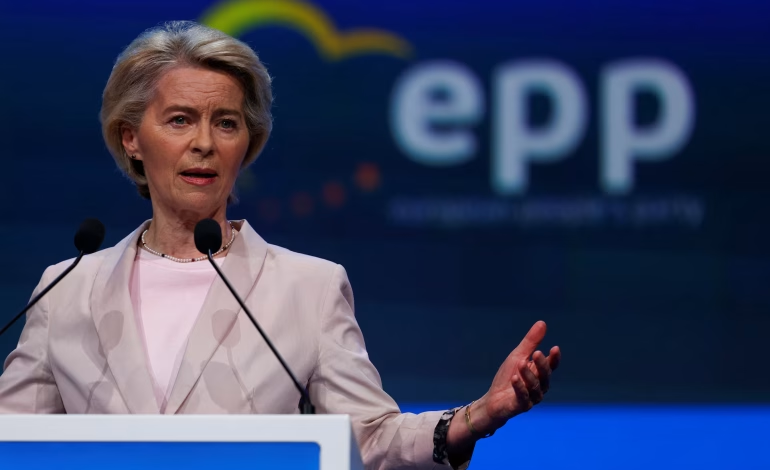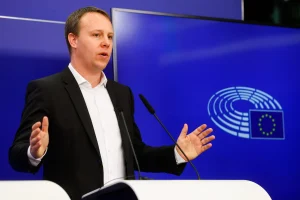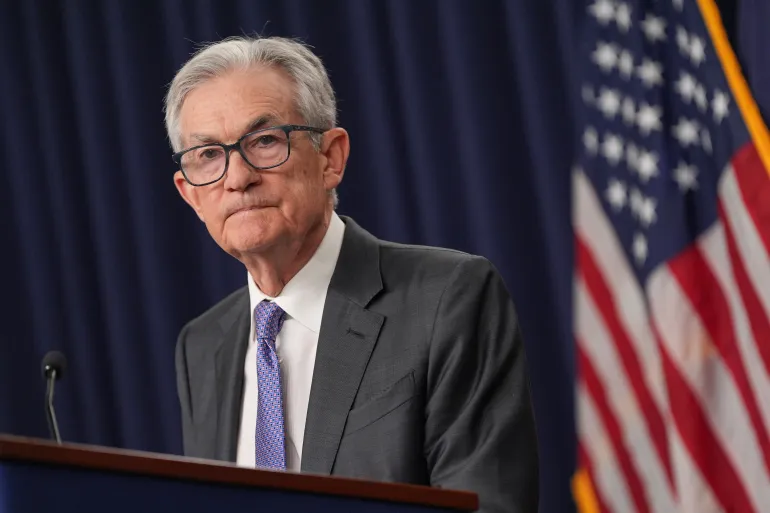EXCLUSIVE: EU Court Ruling on Vaccine Texts Marks Turning Point for Transparency, Says MEP Freund

In mid-May, the EU’s General Court annulled the European Commission’s refusal to release text messages exchanged between Commission President Ursula von der Leyen and Pfizer CEO Albert Bourla during 2021 vaccine-price negotiations. Judges found the Commission offered “no credible explanation” for why the messages could not be located, ruling that such texts qualify as official EU documents and fall under the bloc’s freedom-of-information rules.
The decision is a major blow for von der Leyen, whose handling of pandemic-era contracts has long drawn criticism from parliamentarians and transparency watchdogs. The Commission has said it will “study the judgment carefully” and may appeal to the European Court of Justice (ECJ).
To unpack the ruling’s implications, Wyoming Star (WS) spoke with German Green MEP Daniel Freund, co-chair of the European Parliament’s Intergroup on Anti-Corruption.

WS: What precedent does the General Court’s ruling set for access to digital communications such as texts or messaging app records within EU institutions?
The ruling sets a strong precedent by clarifying that digital communications, including SMS and messaging app records, can constitute “documents” under EU transparency laws if they relate to the institution’s activities. It signals that these forms of communication should be considered for disclosure, provided they meet relevance and authenticity criteria.
WS: Does this ruling suggest that the European Commission must now treat ephemeral communications as official documents subject to transparency laws?
Yes, the ruling implies that even informal or ephemeral digital communications must be treated as potential official documents if they pertain to the Commission’s work. This recognition clarifies the scope of what is considered subject to transparency obligations under EU law.
WS: Given the strength of the General Court’s language, what are the chances that the European Court of Justice would overturn this ruling if appealed?
In my opinion, the chances appear relatively low, as the General Court’s reasoning aligns closely with existing EU transparency principles and precedents. However, the ECJ could clarify or refine the application of these rules to digital communications, especially regarding practical implementation.
WS: Should the EU institutions now be required to implement clear guidelines or infrastructure for archiving informal communications? What models exist?
Yes, this ruling highlights the urgent need for clear guidelines and robust infrastructure to capture and archive informal communications. Models exist in national governments, such as the US Federal Records Act, which requires archiving official communications, including from digital platforms.
WS: How might this ruling affect public trust in Commission President von der Leyen’s handling of the pandemic-era vaccine negotiations?
The ruling could further erode public trust in von der Leyen’s handling of the vaccine negotiations by reinforcing perceptions of secrecy and lack of accountability. It may fuel calls for greater transparency, especially in light of the Commission’s initial reluctance to disclose related communications.
WS: How does the EU’s transparency framework compare with that of national governments or other international institutions (e.g., the UN, US Congress) when it comes to access to informal communications?
The EU’s framework is generally robust on paper but has lagged in practice, especially concerning informal communications. National governments like the US have clearer, enforceable rules for archiving and disclosing digital records, while international institutions often lack comprehensive transparency frameworks altogether.
Editor’s Note
The Commission has less then two months to decide whether to appeal to the ECJ. If the judgment stands, EU bodies will likely have to craft new retention rules for text-message and chat data — something transparency advocates say is long overdue.
For von der Leyen, the court’s sharp rebuke rekindles questions about her administration’s openness during the high-stakes vaccine talks.
With input from:
euronews









The latest news in your social feeds
Subscribe to our social media platforms to stay tuned